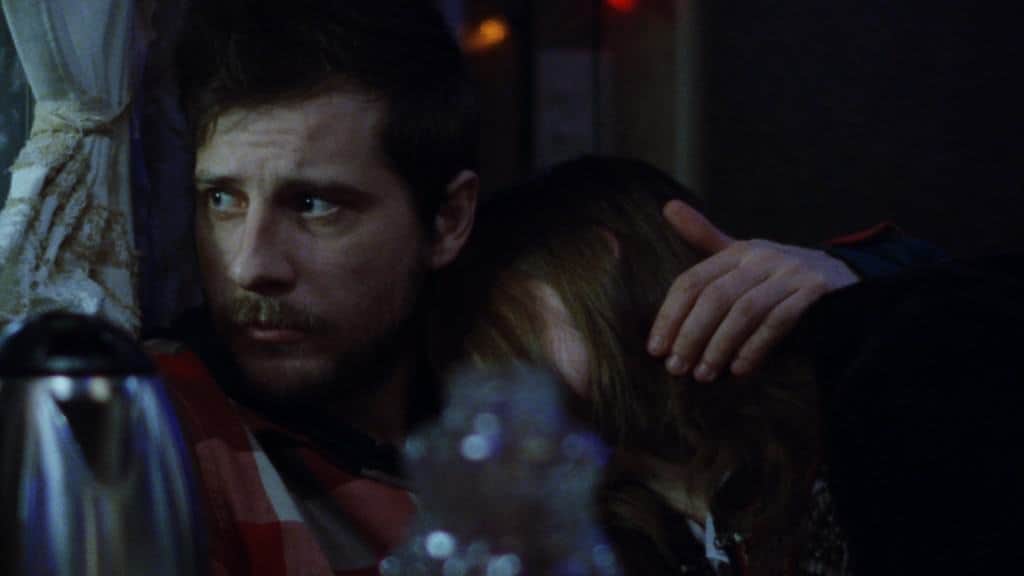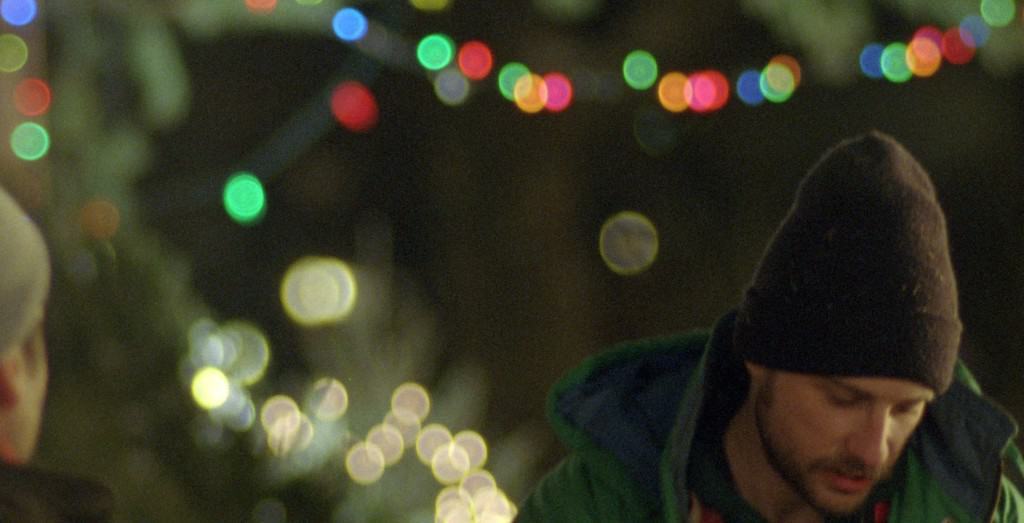
I saw a handful of films from the Sundance NEXT section this year — Christmas, Again, Cronies, Take Me To The River, and H. — a program usually reserved for more experimental, boundary-pushing films than the juried, competition films. Most of these were more mood pieces than narrative ones: visually assured, evocative, and thought-provoking, if at times thin.
The best of the lot was Christmas, Again, a quiet, subtle film from writer-director Charles Poekel, about a lonely man, aptly named Noel (Kentucker Audley), who spends the week before Christmas selling and delivering Christmas trees. The title is perhaps best read as Christmas, AGAIN, for holiday cheer is something from which Noel is horribly detached, something that will resonate with even those that don’t celebrate Christmas, and Poekel captures the way that Noel thus finds himself a lonely outcast.
It’s Noel’s fifth year doing this annual gig in New York City — he spends most of the year as a contractor in upstate New York —and this one is particularly depressing. Gone is his girlfriend who worked at his side last year, though the walls of his trailer are still peppered with photos of her. Despite being in the big city, he spends almost all of his time in the trailer or at the tree stand, with only quick respites in Washington Square Park: it’s claustrophobic and depressing.
It would be easy to make the film an unabashedly romantic ode to New York City at Christmas, and the way that it’s easy to meet a kindred, lonely spirit in such a big place. But Poekel aims for something different, often keeping the backgrounds blurred, so that even the multi-coloured Christmas lights are just dots in the frame. Noel may be in the big city but he has no sense of place or belonging or awe. Poekel fills the film with close-ups of Noel, none more effective than when he delivers a Christmas tree to an unabashedly happy couple, expecting a child, and has to fight to keep his tears inside while on the job. It’s not until he’s on his own, walking, that Noel allows himself to breakdown into tears, and Audley goes for it without going overboard: he’s struggling to prevent a complete outpouring of emotion.

A flicker of hope arrives in the form of Lydia (a luminous Hannah Gross), a woman Noel happens upon, passed out on a park bench. As a good samaritan, he brings her home and gives her his bed to recover. She’s combative rather than grateful at first, concerned that something untoward may have happened. But when she comes back to graciously apologize and thank him, something sweet, tentative, and lovely starts to form between the two.
There’s a connection. It’s not a promise of lifelong partnership or marriage, but just a moment between two people who each need someone to see them. Poekel shoots them in two-shots, first seeming distant in Noel’s car, as far apart from each other as possible, gazing in opposite directions. Later, they share a frame in Noel’s trailer, watching a tea light start to grow. This silent moment, of stolen glances and embarrassed smiles, is one of the sweetest, most romantic moments I’ve seen caught on film recently, yet it’s subtle and small.
This is the rare film that shows a sensitive man without emasculating him — Noel is allowed to have feelings and cry, and this is such a big part of what makes him an endearing, if unconventional, leading man. Equally, Lydia is no pushover, nor does she blindly chase the film’s star. She’s self-possessed but also confused. The heart of the film is watching her and Noel find each other and share their loneliness and confusion. There’s no Hollywood ending here, but though little has happened plot-wise, we sense that this Christmas just might have been transformative for these two lonely, drifting souls.

